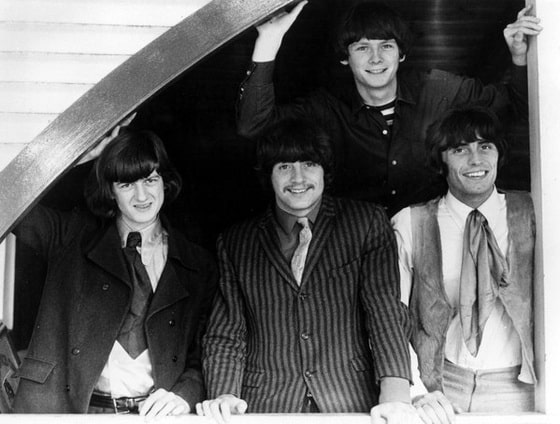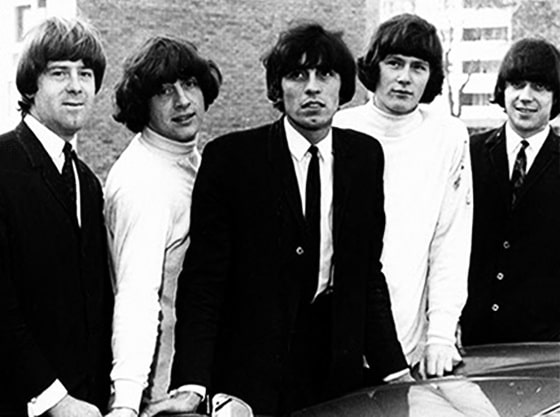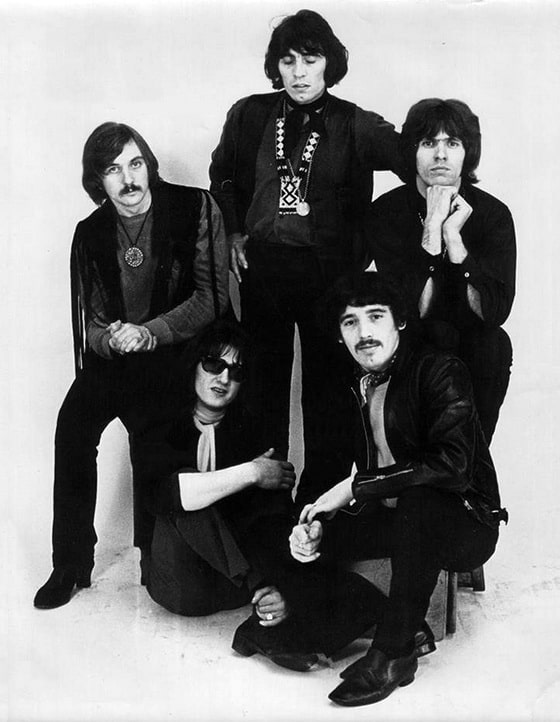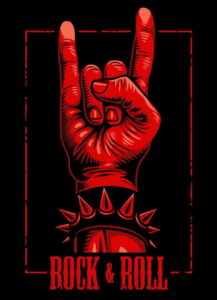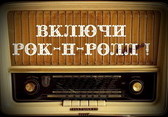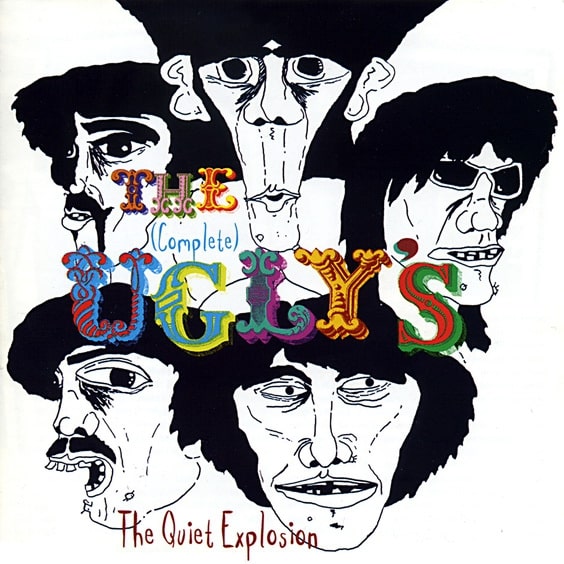 Исполнитель: The Ugly’s
Исполнитель: The Ugly’s
Откуда: England
Альбом: The Complete Ugly’s — The Quiet Explosion
Год выхода: 2004 (recorded in 1965-1969)
Жанр: Freakbeat/Psychedelic/Pop Rock
Формат: MP3 CBR 320
Размер архива: 167.9 МB
The Ugly’s’ history represents one of those hard-luck stories that is all too common in the history of British beat music — a talented band with good songs (including some originals) and a distinctive name, who, despite a long history and an array of future notables, somehow fails to get past local and regional success. For the Ugly’s, that history and their attempts at success ran either nine years or 12 years, depending upon how one counts and where one starts, and its sheer longevity makes theirs an odd story, worth telling in detail. The Ugly’s’ history starts in Birmingham in 1957 — before there really was such a thing as British rock & roll, at least on the charts (unless one counts Tommy Steele) — with a band called the Dominettes, which included in their ranks Jim Holden on drums and Colin Smith on vocals. They were together for three years, with various musicians passing through their ranks before Smith exited in 1960. His replacement was Steve Gibbons, an Elvis Presley fanatic who also played the harmonica. Roy Bates (saxophone) and Bob Burnett (guitar) joined at around the same time, replacing original members Rick Burrows and Clive Jones. They were still known as the Dominettes, but with Gibbons fronting them over the next couple of years, they moved from rock & roll into a more R&B-based sound, which was only enhanced further over the next couple of years as a wholly new lineup assembled itself; Alan Pierce and John Hustwayte joined, on guitar and bass, respectively. The group was still not quite able to get all of the bookings they would have liked, but they managed to work steadily. According to David Wells, they even took the occasional job backing the acts at local strip clubs, to fill those gaps between dance engagements. By 1963, only Holden remained from the original band, whose name and accompanying image seemed extremely dated amid the Merseybeat explosion of the previous 18 months. The group’s own sound had advanced considerably, so that they were now reflecting the influence of the Liverpool sound to some extent, and they’d moved far away from the music that they’d initially built their reputation on. The Dominettes moniker was retired, and in its place they chose the Ugly’s. The exact reason for the choice has been lost to time, but it was memorable and did help get them more bookings than their old name. It wasn’t long after that Pierce left, and the band’s ranks were replenished soon after by the introduction of a full-time organist, John Gordon. It wasn’t long after this personnel change that the group was signed to Pye Records, in 1965. Their debut single showed just how far Steve Gibbons had come from his Elvis Presley fixation. Co-authored by Gibbons, Holden, and Burnett, «Wake Up My Mind» was a British Invasion-style protest song that reflected the then-prominent topical sensibilities of Bob Dylan, among others. And Gibbons was, indeed, under Dylan’s spell, an influence that he would never wholly shake (it’s also arguable that he retained some of his Elvis fixation, albeit more muted). The single — which already placed them on the more arty side of British beat-dom — didn’t chart in England, but did manage to do very well in New Zealand, among other more remote locales. Gordon left after that debut single and was replaced by Jimmy O’Neill, who, in addition to a good looking presence on-stage, also brought a new sound into their repertory in the form of a harpsichord, which made it onto their next release. That second single, «It’s Alright,» got the band lots of exposure on the pirate stations Radio Caroline and Radio London. That airplay resulted in a groundswell of popular support, according to Wells, which took the form of fan petitions to get them a spot performing the song on British television’s Ready Steady Go. All of the radio play, however, never translated into an actual sales chart position, a situation that may well have been the result of a concurrent strike at the distributors, just at the time orders were going out to record stores across the country. A third single, «A Good Idea» b/w «The Quiet Explosion», came out in early 1966 — in later years, the members would lament the choice of sides, recognizing early on that «The Quiet Explosion» was the song to push. It was a tragic error in judgment that cost the band dearly, and not even an appearance on Thank Your Lucky Stars could salvage the record from oblivion. And in the wake of that failure, Burnette and Hustwayte both exited the band. Their replacements, Roger Hill on lead guitar and Dave Pegg on bass, joined in mid-1966, in time to work on the group’s fourth single, a cover of Ray Davies’ «End of the Season,» which the Kinks had recorded but wouldn’t release for almost a year. The jump on a Ray Davies original earned the band a footnoted place in the history of the Kinks, but didn’t sell well enough to keep them signed to Pye. Pegg and Hill left the band after a disastrous attempt at a tour of Finland, though they continued to work together for a short time, co-founding a group called the Exception, which wasn’t too exceptional apart from the fact that it occupied the attention of its lead singer, Robert Plant, for a time in 1967. Hill was replaced in the Ugly’s by Will Hammond, a veteran of the Birmingham music scene, who had come out of as blues-based band called the Yamps, and a big-band rock & roll outfit called Traction. O’Neill made a lateral shift in the band to the bass, leaving the Ugly’s as a quartet of Gibbons, Hammond, O’Neill, and Holden, the latter by then going into the tenth year with the group. As a recording act, they were struggling, and their one-off single for British CBS, «And the Squire Blew His Horn,» didn’t make their prospects look any better when it disappeared without a trace. The song had actually gone over very well on-stage, but the group could never capture much of what made it work live in their recording. They also had something of a near-miss with a much better song, «Roses in the Rain,» recorded at a session where Graham Nash of the Hollies was present — according to Hammond, in an interview with Wells, there was some serious talk of Nash, who was a major pop/rock star at the time, and evidently in the process of considering going into the business end of the music business, taking over their management, with major promotion on a national scale, but it fell apart over their potential managers’ insistence that they give up the Ugly’s name. The Ugly’s regrouped again, this time as a quintet with Dave Morgan, late of the Mayfair Set, coming in on rhythm guitar. This lineup got to record a brace of covers for the BBC, but soon after, in early 1968, O’Neill left the group for a spot in the Mindbenders, and so did Jim Holden, who decided to pack it in after 11 years behind the drum kit. They were succeeded by Richard Tandy on keyboards and Keith Smart on the drums. It was this version of the Ugly’s that recorded a one-off single for MGM Records called «I’ve Seen the Light (Goodnight).» The record died on the vine amid a management/contractual dispute involving their new representative, Tony Secunda, and MGM. At this point, in late 1968/early 1969, the history of the Ugly’s gets confusing. Secunda, who had lately been sacked by the Move over the catastrophic results of a promotional campaign over their single «Flowers in the Rain,» was going through machinations to get Gibbons, Tandy, Morgan, and Smart folded into a new band in conjunction with Trevor Burton and/or Carl Wayne, both ex-members of the Move. Hammond found himself the odd man out in this maneuvering, and it all proved disastrous for the group, which had pretty much dissolved by the end of 1969. Hammond subsequently passed through a latter-day version of the Mindbenders, while Morgan ended up in a pop band called Wishful Thinking during the 1970s. Gibbons went on to a solo career, backed by a band comprised of the members of the post-Jeff Lynne-era Idle Race. But it was where Lynne had gone that would have a most impact on the career of one member of the Ugly’s — Lynne had gone off to join Roy Wood and Bev Bevan in the Move, who, in the course of plotting their future, had devised the notion of an offshoot/parallel band called the Electric Light Orchestra. It was into that band that Richard Tandy ended up in 1972, initially on bass and then on keyboards. He spent most of the 1970s as a member of Lynne’s band, playing to arena audiences and making records that were heard on six continents. Dave Morgan also became part of the Electric Light Orchestra in the 1980s, and he and Tandy joined forces as the Tandy Morgan Band in 1986. Meanwhile, Keith Smart joined Roy Wood’s Wizzard in the mid-’70s. Even short-time member Dave Pegg made out well in the end, as a key member of Fairport Convention and, for a time, Jethro Tull. And Will Hammond became the subject of a television documentary in 2004. That same year, Castle Records released The Quiet Explosion, a collection of the Ugly’s’ complete recordings, including the lost MGM single in its first legitimate release.
Tracks:
01. Wake Up My Mind — 2:47
02. Ugly Blues — 3:00
03. It’s Alright — 2:14
04. A Friend — 2:12
05. A Good Idea — 2:52
06. The Quiet Explosion — 2:38
07. End Of The Season — 2:54
08. Can’t Recall Her Name — 2:38
09. And The Squire Blew His Horn — 3:34
10. Real Good Girl — 3:02
11. I’ve Seen The Light — 3:35
12. Mary Colinto — 3:02
Previously Unissued Tracks:
13. This Is Your Mind Speaking — 2:14
14. Love & Best Wishes (BBC Session) — 2:57
15. Morning (BBC Session) — 3:00
16. All That Glitters — 3:51
17. Hey Grandma (BBC Session) — 3:06
18. Speakly Weekly — 3:06
19. Summertime Blues (BBC Session) — 2:46
20. She Comes In Colours (BBC Session) — 2:59
21. Mary Colinto (Alternate Version) — 3:00
22. Ill Wind That Blows — 2:26
23. Roses In The Rain — 5:31
Personnel:
Steve Gibbons — lead vocals (01-10, 14-20, 23), kazoo (01-10, 14-20, 23)
Dave Morgan — rhythm guitar & vocals (13-23), lead vocals (21)
Bob Burnett — guitar (01-06)
Richard Tandy — guitar (13, 21, 22), keyboards (11, 12)
Will Hammond — lead guitar & vocals (09, 10, 14-20, 23)
Roger Hill — lead guitar (07, 08)
John Hustwayte — bass (01-06)
Dave Pegg — bass (07, 08)
Jimmy O’Neill — bass (09, 10, 14-20, 23), organ & harpsichord (03-08)
Trevor Burton — bass & backing vocals (13, 21, 22)
John Gordon — organ (01, 02)
Jim Holden — drums
Keith Smart — drums (11-13, 21, 22)
Carl Wayne — backing vocals (13, 21, 22)
